Description
ABSTRACT
Legal Protection of Plant Varieties and Breeders’ Rights in Nigeria
Christopher O Ilori* and Afolasade A Adewumi**
Plant varieties have developed as a way of ensuring that farmers can achieve high productivity. The international arena has put in place conventions to ensure that the breeders’ inventions are adequately protected. This article is a discussion of the protection available to breeders globally while at the same time showcasing the need for Nigeria to protect breeders’ rights.
Keywords: Plant Varieties; Breeders’ Rights; Breeders’ Invention; Legal Protection in Nigeria.
INTRODUCTION
Article 1(vi) of the International Convention for the Protection of New Varieties of Plants1 defines “variety” as
A plant grouping within a single botanical taxon of the lowest known rank, which grouping, irrespective of whether the conditions for the grant of a breeder’s rights are fully met, can be (a) defined by the expression of the characteristics resulting from a given genotype or combination of genotypes; (b) distinguished from any other plant grouping by the expression of at least one of the said characteristics and; (c) considered as a unit with regard to its suitability for being propagated unchanged.
A variety must be distinguishable by its characteristics, different from any other variety and remain unchanged through the process of propagation.2 Simply put, a plant variety is a set of refined plants having a common origin but differs from plants of the same order by inherited characteristics.3 A plant variety is formed by cultivation which may be by classical methods or genetic engineering.4 Whatever the method adopted, it leads to the development of new varieties of plants.
* Ph.D, Department of Crop Protection and Environmental Biology, Faculty of Agriculture and Forestry, University of Ibadan, Ibadan, Nigeria.
** Ph.D, BL. Department of Jurisprudence & International Law, Faculty of Law. University of Ibadan, Ibadan, Nigeria.
- This Convention is known as the UPOV Convention. The reason is that the Convention establishes the International Union for the Protection of New Varieties of Plants (Union internationale pour la protection des obtentions vegetales). For this work, the UPOV Convention means the latest Act of 1991.
- TO Oloko, ‘An examination of Article 27 of the TRIPS Agreement in relation to the provisions on a patentable subject matter under the PDA in Nigeria’ (2016) 42(2) Commonwealth Law Bulletin 236, 257.
- N Ljubojev and S Varga, ‘The Legal Protection of New Plant Varieties’ (2013) 8(16) African Journal of Agricultural Research, 1333.
- ibid.

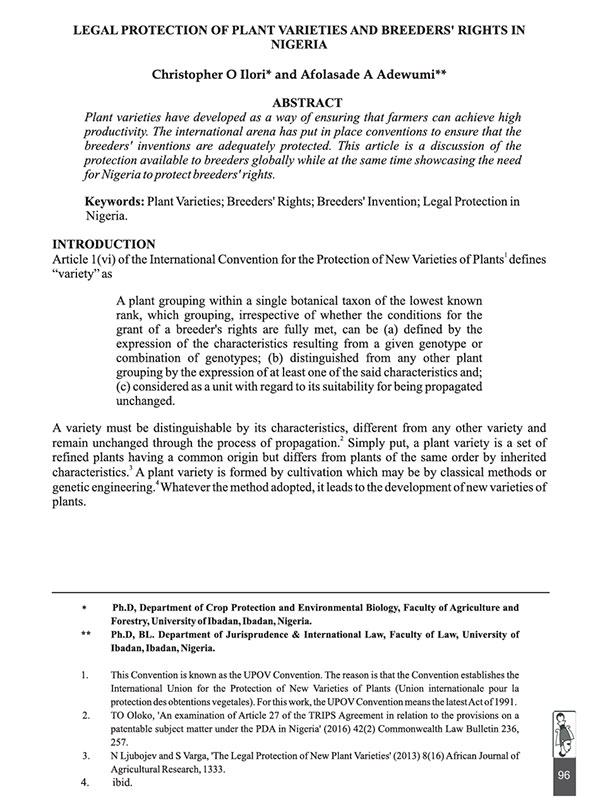
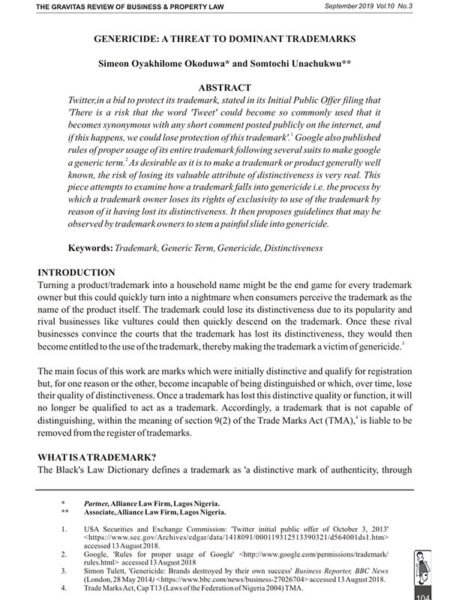
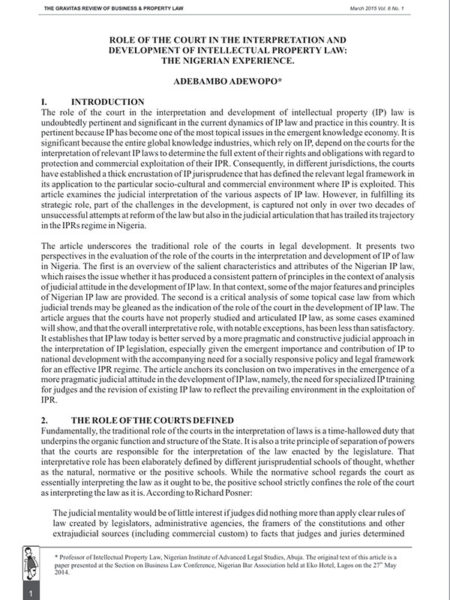
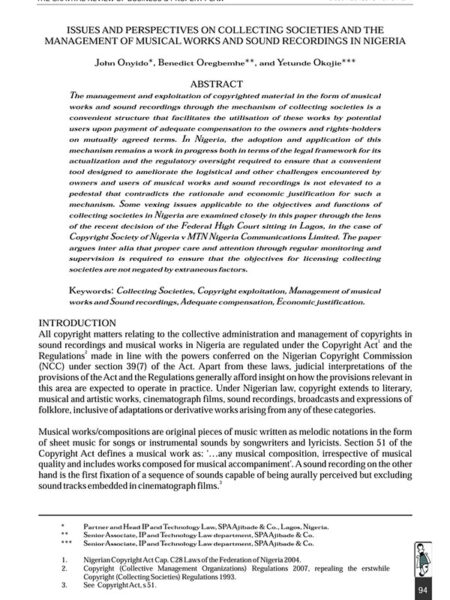
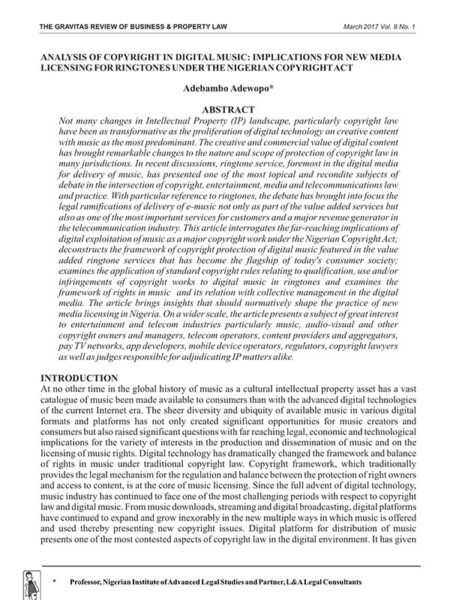


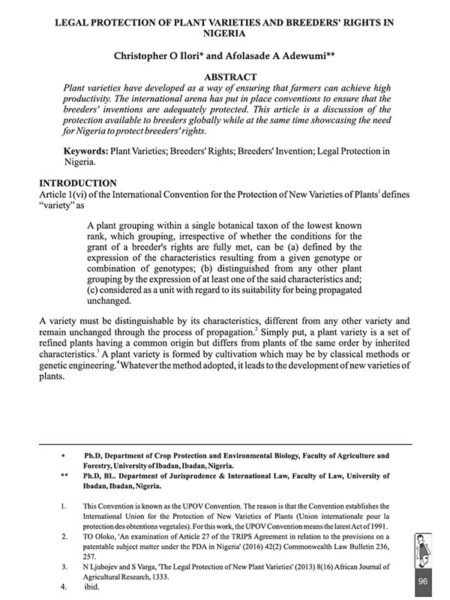
Reviews
There are no reviews yet.